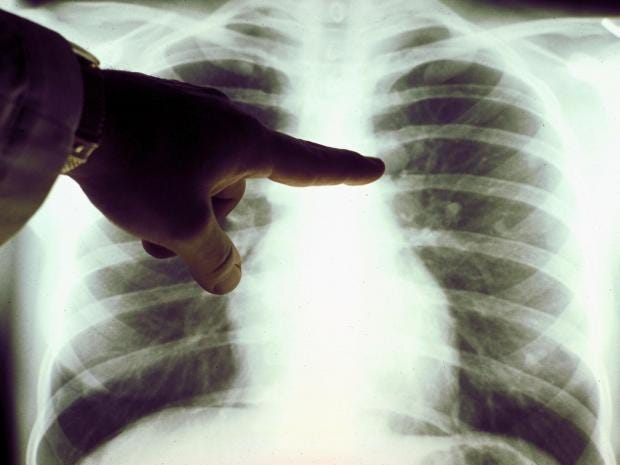The human body will eventually be able to be ‘reprogrammed’ back into a healthy state, experts working for the tech company have claimed
|
|
 Potentially, desktop computers could be used to understand how cells behave and to treat diseases like lung cancer Getty
Potentially, desktop computers could be used to understand how cells behave and to treat diseases like lung cancer Getty
Microsoft says it is going to “solve” cancer in the next 10 years.
The company is working at treating the disease like a computer virus, that invades and corrupts the body’s cells. Once it is able to do so, it will be able to monitor for them and even potentially reprogramme them to be healthy again, experts working for Microsoft have said.
The company has built a “biological computation” unit that says its ultimate aim is to make cells into living computers. As such, they could be programmed and reprogrammed to treat any diseases, such as cancer.
In the nearer term, the unit is using advanced computing research to try and set computers to work learning about drugs and diseases and suggesting new treatments to help cancer patients.
The team hopes to be able to use machine learning technologies – computers that can think and learn like humans – to read through the huge amounts of cancer research and come to understand the disease and the drugs that treat it.
At the moment, so much cancer research is published that it is impossible for any doctor to read it all. But since computers can read and understand so much more quickly, the systems will be able to read through all of the research and then put that to work on specific people’s situations.
It does that by bringing together biology, maths and computing. Those have long been treated as relatively distinct but are coming closer together in recent years, and have been spurred on by Microsoft’s investment.
“The field of biology and the field of computation might seem like chalk and cheese,” Chris Bishop, head of Microsoft Research’s Cambridge-based lab, told Fast Company. “But the complex processes that happen in cells have some similarity to those that happen in a standard desktop computer.”
As such, those complex processes can potentially be understood by a desktop computer, too. And those same computers could be used to understand how cells behave and to treat them.
If that were possible, then those computers wouldn’t only be able to understand why cells behave as they do and when they might be about to become cancerous. They’d also be able to trigger a response within a cell, reversing its decision and reprogramming it so that it is healthy again.
Microsoft says that solution could be with us within the next five or ten years.
Andrew Philips, who leads Microsoft’s biological computation group, told The Telegraph that in as little as five years it hopes to be able to develop a system for detecting problems. “It’s long term, but … I think it will be technically possible in five to ten years’ time to put in a smart molecular system that can detect disease.”
